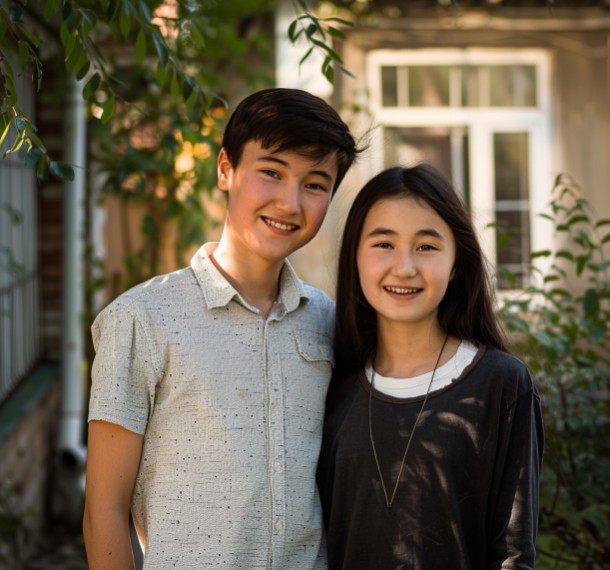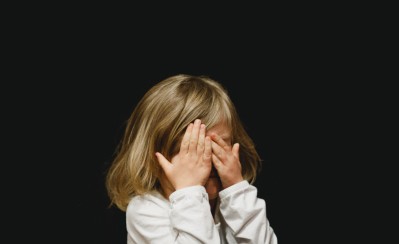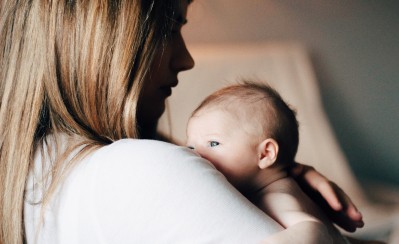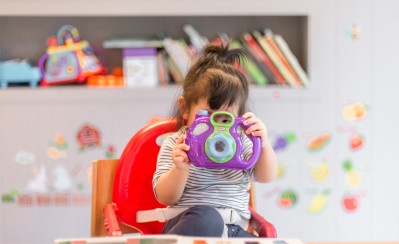Center for Support of Children and Families
Family problems do not always mean unreliability of parents. Often, it indicates the need for support that will help parents survive the crisis and get tools to cope with life’s difficulties. Such help can be obtained at our Child and Family Support Centers.
Child and Family Support Centers work not only with biological families, but also with foster families. We help them resolve difficulties in order to avoid the removal of children from families or secondary orphanhood. In addition, the Centers’ specialists also work with people who are just preparing to become foster parents. For them, we conduct Foster Parent Schools.
Almaty, Astana, Temirtau
18 months
The main principles of the activities of the Child and Family Support Centers are a comprehensive approach and individual work through case management. Families receiving assistance at the center go through the following path:
Identification of families and children in difficult life situations.
Legal and psychological assistance to families in difficult life situations and foster families.
Development of individual plans to overcome a difficult life situation for the family and child.
Support for families and children at every stage of the implementation of an individual assistance plan.
Correctional and rehabilitation work with parents, assistance in identifying and realizing their own abilities to overcome difficult life situations.
Current assessment and achievement of changes in the family.
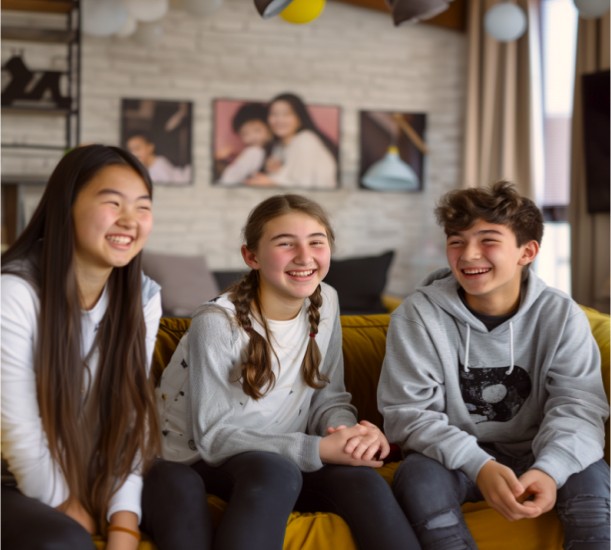
After the family emerges from the crisis, specialists remain in touch, providing the necessary social services and monitoring their progress.
If separation from the family is inevitable or more favorable for the child, then we help find a foster family for him/her to protect the child from the traumatic experience of placement in an institution.
At each stage, the CPDS team actively interacts with colleagues from various government and non-governmental organizations. This includes joint work on cases and active educational and methodological support with the transfer of knowledge and experience.
Target groups of the project:
- orphans and children left without parental care;
- children in the care of SOS Children’s Villages
children and families in difficult life situations, including families based at the ASAR center; - families wishing to adopt or take a child into foster care (adoptive parents, guardians (trustees), foster parents, adoptive parents and host families);
- families that have already adopted or taken a child into foster care (adoptive parents, guardians (trustees), foster parents, adoptive parents and host families);
- candidates for foster parents and foster parents;
specialists of support services and placement of children in families
volunteers wishing to work with orphans.
Planned activities:
The project envisages a comprehensive interdepartmental approach, including:
1. Implementation of existing technologies for early detection of family problems and timely assistance to the family and the child to prevent children from losing their place in a biological family;
2. Stimulating the development of family forms of placement of children left without parental care;
3. Creation of infrastructures that provide support for foster families;
4. Creation of living conditions, upbringing and education for children who, for various reasons, cannot be transferred to be raised in families.
5. Creation of a network of project partners: state, non-governmental and international organizations.
Planned activities:
- Identification of families and children in difficult life situations
- Consultation of children and adolescents, their parents (legal representatives) on social, legal, psychological and pedagogical issues;
- Development of individual plans for the family and child to overcome a difficult life situation, their support;
- Implementation of correctional and rehabilitation work with parents, assistance in identifying and implementing their own capabilities to overcome a difficult life situation;
- Implementation of patronage over a child in the family
- Current assessment of the family, achieving changes in the family
- Provision of reception, maintenance and upbringing of children in cases that cause concern for the life and health of children, as well as when establishing the status of an orphan and a child left without parental care.
- Permanent placement of a child in a family if it is impossible to return to the blood family
Planned activities:
Prevention of removal of children and families
• Identification of families with children and families with adopted children in difficult life situations, threatening abandonment of the child or his/her temporary placement in an institution for orphans through educational and health care institutions, guardianship and trusteeship authorities, juvenile justice (juvenile affairs inspectorate), the public, etc.;
• Comprehensive support for families with adopted children in difficult life situations;
• Assistance to children left without parental care to restore relationships with biological relatives.
School for Foster Parents
• Primary psychological assistance to citizens wishing to take in a child left without parental care, who will be referred by the guardianship and trusteeship authorities;
• Organization of work on the search and selection of potential adoptive parents, guardians (trustees) and foster caregivers;
• Comprehensive assessment of the readiness of candidates for guardians (trustees), adoptive parents and foster caregivers to accept children to live in a family;
• Training of candidates for adoptive parents, guardians and foster caregivers according to developed programs;
• Submission of recommendations to the guardianship and trusteeship authorities based on the results of work with candidates for adoptive parents, guardians (trustees) and foster caregivers;• Comprehensive support for families with adopted children in difficult life situations;
• Helping children left without parental care restore relationships with biological relatives.
Comprehensive family support services
• Monitoring the adaptation process of orphans, children left without parental care, in foster families;
• Step-by-step management and supervision, psychological and legal assistance to the child and foster parents;
• Organization of rehabilitation and leisure programs for families with foster children and pupils of institutions for orphans.
Short-term accommodation services for children
Providing care for children whose families are in a crisis situation, as a temporary solution before the subsequent return/reintegration of the child into the birth family, or after the removal of the child from the family where there is a threat to his or her life and health, preparation before placing him or her in alternative forms of care (guardianship, adoption, foster care or SOS family care), as well as a temporary measure for children in the process of establishing their status or searching for their parents, and the child requires temporary placement.
Short-term guardianship
Short-term guardianship is provided:
1. to children and teenagers whose families are in a life crisis situation.
2. to children and teenagers when the whereabouts of their parents are unknown, and the child needs temporary placement until the parents are found and the situation of the possible return of the child to his own family is resolved.
3. including children whose parents may have been deprived of parental rights, the children before that period were in other institutions for orphans and children left without parental care, and were sent for placement in the Children’s Village, but an in-depth assessment of the children’s needs and the capabilities of his biological family was not carried out.
4. short-term guardianship is also provided to all children sent by guardianship and trusteeship authorities for placement in the Children’s Village, as temporary placement before placing them in SOS families.
Short-term guardianship can be organized in the form of a center designed to accommodate up to 8 — 12 children / teenagers, where their guardianship and upbringing services will be provided by professionally trained shift educators. But the best option, taking into account the needs of children, is placement in a family home based on a professional SOS family/foster family, specially trained to provide care to children in crisis situations. The duration of short-term care is from several days/weeks to six months. The maximum duration of a child’s stay in short-term care should not exceed 1 year.
Services for children
• Pedagogical and rehabilitation work with a child who requires placement outside the family of biological parents, in order to prepare him/her for placement in a family for upbringing.
• Development of a plan for the protection of the child’s rights in order to prepare him/her for placement in a foster, guardianship or patronage family;
• Participation in preparing a child for transfer to foster, guardianship or patronage families;
6. Methodological activities services:
• Improving the professional competence of specialists — holding seminars and trainings for specialists working in the field of prevention of social orphanhood and family placement of children deprived of parental care
• Accumulation and dissemination of scientific and methodological materials on the problems of family upbringing, promotion of the experience of positive family upbringing in guardianship, foster and patronage families;
• Dissemination of developments and gained work experience, holding seminars and conferences on the protection of children’s rights and the organization of the work of guardianship and trusteeship authorities.
Expected results of the implementation of the CPDS project:
1. Improving the quality of life and upbringing of orphans and children left without parental care
2. Reducing the number of children in orphanages and boarding schools, as well as the length of time children live in boarding institutions.
3. Children remain in biological families
4. Creating a new model of an educational institution — a professional center for placing children in families.
5. Creating a multi-level system of assistance to various types of foster families (foster, guardianship, patronage families, families of Kazakhstani adoptive parents).
6. Creating a single educational, information-methodological, information-communication space in the field of assistance to foster families and orphans.
7. Creating an effective state system of support for foster families and monitoring the living conditions and upbringing of children in families.
8. Creating a sustainable partner network of state and non-governmental organizations working in the field of prevention of social orphanhood to provide comprehensive support to project beneficiaries.
FAQ
My family needs help. How can I contact the Child and Family Support Center?
Алматы: +7 (707) 689 7800
Астана: +7 (7172) 35 28 98
Караганда, филиал в Пришахтинске: +7 778 180 9720
Темиртау: +7 (708) 430 0793
Специалисты смогут проконсультировать вас в любой будний день с 8:00 до 18:00.


